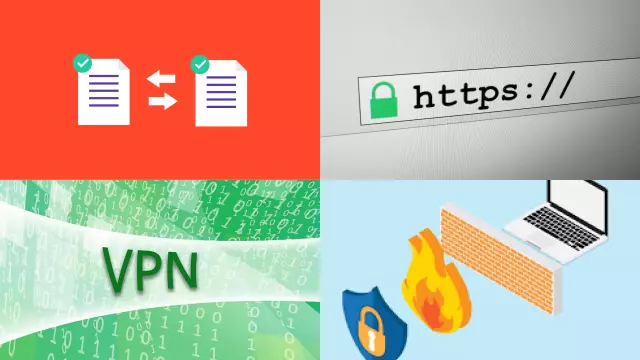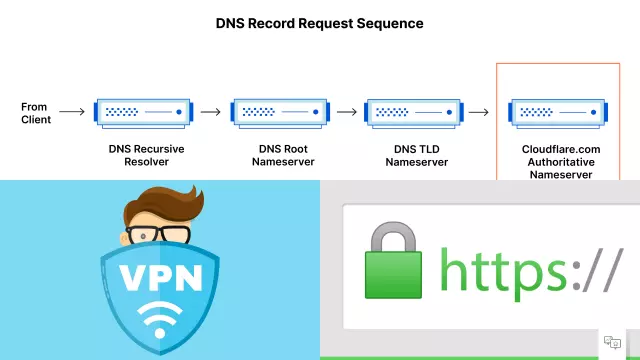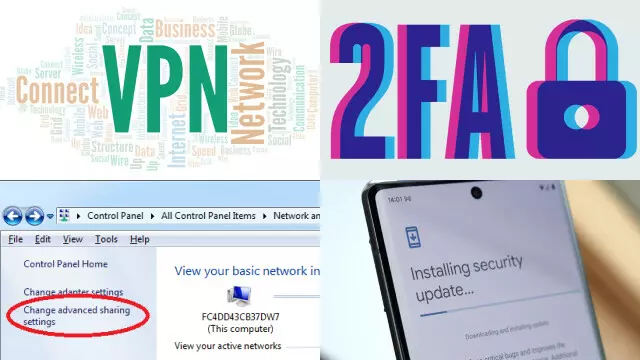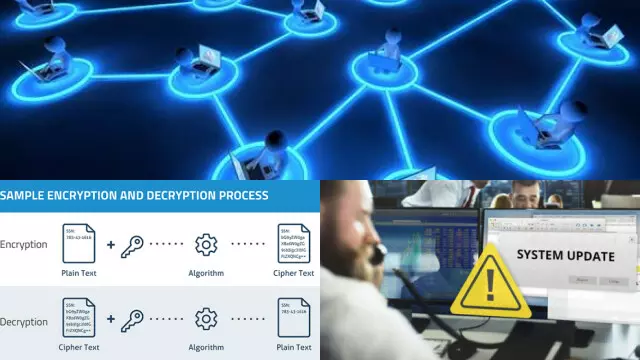Understanding the Risks of Public Wi-Fi
Public Wi-Fi is convenient and widely available, but it can also be risky. When you connect to a public Wi-Fi network, you’re sharing the same network with other users, some of whom may have malicious intentions. Hackers can use public Wi-Fi to intercept your data, including passwords, credit card numbers, and other sensitive information.
In addition to the risk of hacking, public Wi-Fi can also expose you to malware and viruses. Malicious software can be downloaded onto your device without your knowledge, potentially compromising your personal data.
It’s important to understand the risks of using public Wi-Fi and take steps to protect yourself. Whenever possible, use a secure network or a virtual private network (VPN) to encrypt your data. Avoid entering sensitive information like passwords and credit card numbers while on public Wi-Fi. By taking these precautions, you can minimize your risk of falling victim to cyberattacks while using public Wi-Fi networks.
Benefits and Drawbacks of Using Public Wi-Fi
Public Wi-Fi can be a convenient way to stay connected while on-the-go, but it also comes with both benefits and drawbacks.
One of the main benefits of public Wi-Fi is its availability. It’s often free and can be found in public places such as cafes, airports, and hotels. It allows you to stay connected without using up your mobile data or incurring additional costs.
However, the drawbacks of public Wi-Fi are significant. It’s an unsecured network, meaning that anyone connected to the same network can potentially access your data. This can include passwords, personal information, and financial data. Public Wi-Fi also tends to be slow and unreliable, which can be frustrating for users who need a fast and stable connection.
In summary, while public Wi-Fi can be a useful tool for staying connected, it’s important to be aware of the potential risks and take steps to protect your privacy and security while using these networks.
How to Find Safe Public Wi-Fi Networks
Finding safe public Wi-Fi networks can be a challenge, but there are a few steps you can take to minimize your risk of falling victim to cyberattacks.
One option is to look for networks that require a password or some form of authentication. These networks tend to be more secure than open networks that anyone can join without any restrictions. You can also look for networks that are provided by reputable companies, such as airports or coffee shops that you trust.
Another option is to use a virtual private network (VPN), which encrypts your data and helps protect your privacy while using public Wi-Fi. There are many VPN services available for both desktop and mobile devices.
Ultimately, it’s important to be cautious when using public Wi-Fi networks and take steps to protect your personal information. By following these tips, you can find safe and reliable public Wi-Fi networks while minimizing your risk of cyberattacks.
How to Connect to Public Wi-Fi Safely
Connecting to public Wi-Fi safely is essential to protect your privacy and sensitive information from cyber threats. Here are some tips to help you connect to public Wi-Fi safely:
- Disable file sharing: When you’re connected to a public Wi-Fi network, it’s important to disable file sharing on your device to prevent others from accessing your files.
- Use HTTPS websites: Whenever possible, use HTTPS websites to ensure that your data is encrypted and secure.
- Install a trusted VPN: Using a VPN encrypts your internet traffic and protects your online privacy. Make sure to use a trusted VPN provider.
- Use a firewall: A firewall can prevent unauthorized access to your device by blocking suspicious traffic.
- Keep your software updated: Ensure that your device’s software is updated regularly to keep up with the latest security patches and fixes.

By following these tips, you can connect to public Wi-Fi safely and minimize the risk of falling victim to cyberattacks.
How to Encrypt Your Internet Connection on Public Wi-Fi
Encrypting your internet connection on public Wi-Fi is crucial to protect your sensitive information from potential cyber threats. Here are some ways to encrypt your internet connection:
- Use a Virtual Private Network (VPN): A VPN creates a secure connection between your device and the internet, encrypting your data and keeping it safe from potential hackers.
- Use HTTPS websites: HTTPS websites encrypt your data in transit, making it difficult for hackers to intercept and steal your sensitive information.
- Use Secure DNS: Secure DNS services, such as Google’s DNS-over-HTTPS or Cloudflare’s 1.1.1.1, can help protect your browsing history and prevent attackers from redirecting you to malicious websites.

By following these tips, you can encrypt your internet connection and stay safe while using public Wi-Fi. Always remember to use a strong password and keep your software updated to further enhance your security.
How to Protect Your Personal Information on Public Wi-Fi
Public Wi-Fi can pose a serious risk to the security of your personal information. Here are some steps you can take to protect yourself:
- Use a Virtual Private Network (VPN): A VPN encrypts your internet traffic and keeps your online activity private.
- Use Two-Factor Authentication (2FA): Enable 2FA on your accounts to add an extra layer of security.
- Disable File Sharing: Turn off file sharing on your device to prevent others on the network from accessing your files.
- Avoid Online Banking or Shopping: Avoid performing any sensitive activities, such as online banking or shopping, on public Wi-Fi.
- Keep Your Device Updated: Make sure your device is up-to-date with the latest security patches and software updates to protect against known vulnerabilities.

By following these tips, you can protect your personal information and stay secure while using public Wi-Fi.
What to Do If You’ve Connected to a Suspicious Wi-Fi Network
If you’ve connected to a suspicious Wi-Fi network, there are some steps you can take to protect yourself and your device.
Firstly, disconnect from the network immediately. This will prevent further access to your device or personal information.
Next, scan your device for any malware or viruses. Use a reputable anti-virus software to scan your device thoroughly.
If you have entered any sensitive information, such as passwords or credit card details, on the suspicious network, change those passwords immediately and monitor your accounts for any suspicious activity.
Finally, consider resetting your device to factory settings. This will remove any potential malware or viruses that may have been installed on your device.
By following these steps, you can minimize the damage caused by connecting to a suspicious Wi-Fi network and ensure the safety of your personal information.
Best Practices for Staying Safe on Public Wi-Fi
Public Wi-Fi can be convenient, but it can also be a security risk if you don’t take the proper precautions. Here are some best practices to stay safe on public Wi-Fi:
- Avoid sensitive activities: Try not to perform sensitive activities on public Wi-Fi, such as banking or shopping online. If you have to do so, use a virtual private network (VPN) to encrypt your internet connection.
- Verify the network: Verify that you’re connecting to the correct public Wi-Fi network. Hackers can set up fake Wi-Fi networks to trick users into connecting to them, so make sure you’re connecting to a network provided by a trusted source.
- Use encryption: Make sure the websites you visit are encrypted with HTTPS, which encrypts data transmitted between your device and the website.
- Disable automatic connections: Disable automatic Wi-Fi connections on your device to prevent it from connecting to a network without your knowledge.
- Keep software up to date: Keep your device’s software up to date with the latest security patches to protect against known vulnerabilities.

By following these best practices, you can enjoy the convenience of public Wi-Fi while minimizing the risks to your personal information and devices.